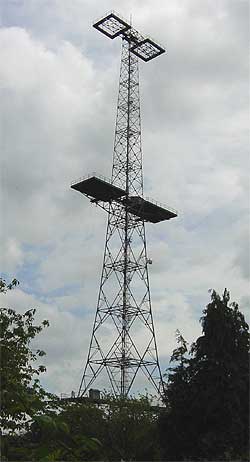Scott Alexander discusses why WebMD is not the be-all and end-all of internet medical resources:
WebMD is the Internet’s most important source of medical information. It’s also surprisingly useless. Its most famous problem is that whatever your symptoms, it’ll tell you that you have cancer. But the closer you look, the more problems you notice. Consider drug side effects. Here’s WebMD’s list of side effects for a certain drug, let’s call it Drug 1:
Upset stomach and heartburn may occur. If either of these effects persist or worsen, tell your doctor or pharmacist promptly. If your doctor has directed you to use this medication, remember that he or she has judged that the benefit to you is greater than the risk of side effects. Many people using this medication do not have serious side effects. Tell your doctor right away if you have any serious side effects, including: easy bruising/bleeding, difficulty hearing, ringing in the ears, signs of kidney problems (such as change in the amount of urine), persistent or severe nausea/vomiting, unexplained tiredness, dizziness, dark urine, yellowing eyes/skin. This drug may rarely cause serious bleeding from the stomach/intestine or other areas of the body. If you notice any of the following very serious side effects, get medical help right away: black/tarry stools, persistent or severe stomach/abdominal pain, vomit that looks like coffee grounds, trouble speaking, weakness on one side of the body, sudden vision changes or severe headache.
And here’s their list of side effects for let’s call it Drug 2:
Nausea, loss of appetite, or stomach/abdominal pain may occur. If any of these effects persist or worsen, tell your doctor or pharmacist promptly. Remember that your doctor has prescribed this medication because he or she has judged that the benefit to you is greater than the risk of side effects. Many people using this medication do not have serious side effects. This medication can cause serious bleeding if it affects your blood clotting proteins too much. Even if your doctor stops your medication, this risk of bleeding can continue for up to a week. Tell your doctor right away if you have any signs of serious bleeding, including: unusual pain/swelling/discomfort, unusual/easy bruising, prolonged bleeding from cuts or gums, persistent/frequent nosebleeds, unusually heavy/prolonged menstrual flow, pink/dark urine, coughing up blood, vomit that is bloody or looks like coffee grounds, severe headache, dizziness/fainting, unusual or persistent tiredness/weakness, bloody/black/tarry stools, chest pain, shortness of breath, difficulty swallowing.
Drug 1 is aspirin. Drug 2 is warfarin, which causes 40,000 ER visits a year and is widely considered one of the most dangerous drugs in common use. I challenge anyone to figure out, using WebMD’s side effects list alone, that warfarin is more dangerous than aspirin. I think this is because if WebMD said “aspirin is pretty safe and most people don’t need to worry about it”, people might use aspirin irresponsibly, die, and then their ghosts might sue WebMD. Or if WebMD said “warfarin can be dangerous, be careful with this one”, people might refuse to take warfarin because “the Internet said it was dangerous”, die of the stuff warfarin is supposed to treat, and then their ghosts might sue WebMD. WebMD solves this by never giving the tiniest shred of useful information to anybody.
This is actually a widespread problem in medicine. The worst offender is the FDA, which tends to list every problem anyone had while on a drug as a potential drug side effect, even if it obviously isn’t. This got some press lately when Moderna had to disclose to the FDA that one of the coronavirus vaccine patients got struck by lightning; after a review, this was declared probably unrelated. For the more serious version of this, read Get Ready For False Side Effects. Why does the FDA keep doing this if they know it makes their label information useless? My guess is it’s because they don’t want to look like cowboys who unprincipledly consider some things but not other things. What if someone accused the person deciding what things to consider of being biased? So the FDA comes up with a Procedure, and once you have a Procedure it has to be “take everything seriously”, and then it falls on random small-fry people who aren’t the FDA to pick up the slack and explain which side effects are worth worrying about or not, and then those small fries don’t do that, because they could get sued.
I think the same concern motivates WebMD diagnosing everything as cancer. If they said something other than cancer, then people might sigh with relief, not bother to get a cancer screening, die from some weird cancer that doesn’t present the way normal cancers do, and then their ghosts might sue WebMD.
Of course, WebMD and other online medical information sites didn’t invent hypochondria, they merely made it easier to do to yourself what Jerome K. Jerome did one fine London morning in 1888:
I remember going to the British Museum one day to read up the treatment for some slight ailment of which I had a touch — hay fever, I fancy it was. I got down the book, and read all I came to read; and then, in an unthinking moment, I idly turned the leaves, and began to indolently study diseases, generally. I forget which was the first distemper I plunged into — some fearful, devastating scourge, I know — and, before I had glanced half down the list of “premonitory symptoms,” it was borne in upon me that I had fairly got it.
I sat for awhile, frozen with horror; and then, in the listlessness of despair, I again turned over the pages. I came to typhoid fever — read the symptoms — discovered that I had typhoid fever, must have had it for months without knowing it — wondered what else I had got; turned up St. Vitus’s Dance — found, as I expected, that I had that too, — began to get interested in my case, and determined to sift it to the bottom, and so started alphabetically — read up ague, and learnt that I was sickening for it, and that the acute stage would commence in about another fortnight. Bright’s disease, I was relieved to find, I had only in a modified form, and, so far as that was concerned, I might live for years. Cholera I had, with severe complications; and diphtheria I seemed to have been born with. I plodded conscientiously through the twenty-six letters, and the only malady I could conclude I had not got was housemaid’s knee. […] I had walked into that reading-room a happy, healthy man. I crawled out a decrepit wreck.







